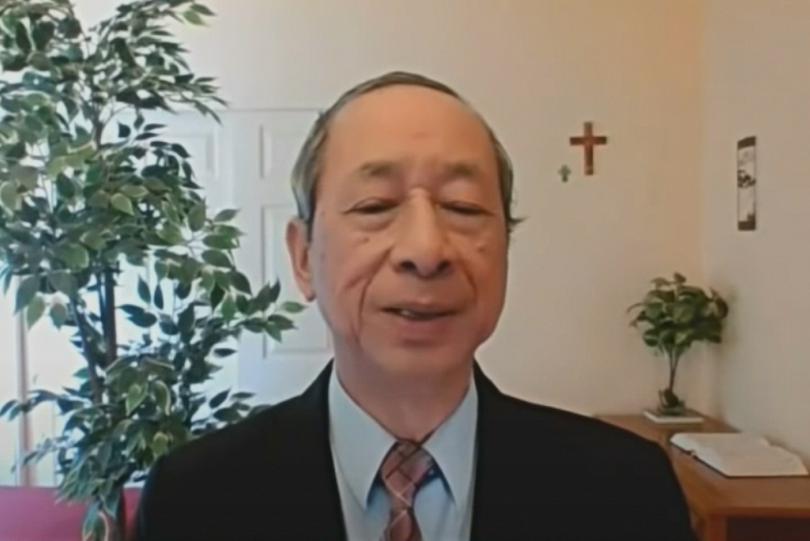In a conference commemorating the Chinese influential evangelist John Sung, a speaker delivered the message of the spiritual inheritance of the revivals in the Chinese church.
On the second day of commemorating the 120th anniversary of the birth of John Sung (1901-1944) who played an influential role in the revival movement in churches of China during the 1920s and 1930s, Pastor Edwin Su, founder of “Overseas Campus” magazine in the United States, shared the speech titled “Let the Fire Burn On: The Spiritual Inheritance of Revivals in the Church in China”.
On October 27, Pastor Edwin Su or Sun Wenfeng who has devoted himself to theological education for many years encouraged Christians to carry on the church's revival tradition to which Dr. John Sung was committed and strive for the great commission, with references to Bible verses and church history.
Throughout the history of the church spanning more than 2,000 years, God led many spiritual revivals at different times and in many different ways, the American Chinese pastor claimed.
Pastor Su said, “In Mark 1:15, Acts 1:6-8, and Acts 1:14, there are seven key sentences: ‘the time is fulfilled’, ‘the kingdom of God is at hand’, ‘repent and believe in the Gospel’, ‘you will receive power’, ‘you will be his witness’ and ‘these all continued with one accord in prayer and supplication’.”
He explained that they were the seven common points of spiritual revival through the ages, clearly seen in the great revival of churches in Britain and America in modern times, the revival of churches in China in the 20th century, and the revival meetings of John Sung.
At that time, the Welsh Revival also spread to China through many missionaries. Some missionaries in China said, "Many places in China, such as the northeast, northwest, and the central, Xiamen, Fujian, Guangdong and so on, are experiencing a great revival like the Welsh Revival.” At that time, there was a sister named Dora Yu, who studied medicine in China and was qualified as a doctor. Later, God called her to follow a missionary to preach the gospel in South Korea in 1896. This was the first cross-national and cross-cultural missionary in China. When she returned to the homeland, she stopped working as a doctor and became a full-time evangelist. God used the stutterer, who stammered and couldn't speak fluently, as a messenger of the gospel. Later, many famous pastors and preachers in China were influenced by her. It could be said that she was the pioneer of the revival of churches in China in the 20th century.
The pastor said that the message that God gave to Yu was to “pray without ceasing”, “deal with sin”, “spiritual life is more important than spiritual gifts”, and "obey the guidance of the Holy Spirit”. It is said that when she finished her preaching, “The ground in front of the audience was filled with tears.” This is the wonderful work of the Holy Spirit.
During the period from 1920 to 1930, in the revival in China, God brought the inheritance of churches in China including making confession publicly, praying together, crying, and remaining in silence. At the same time, many believers in the revival resolved grievances from the Boxer Rebellion.
Later, the great revival from 1920 to 1949 was the one initiated by God in the era of John Sung, the “Wesley of China”. In the 1920s, a series of national salvation and survival movements emerged in the society of China, such as the May Fourth Movement and the New Culture Movement. It was also during this period that God called many young missionaries and believers in China to rise up. Pastor Su said they shared a common belief in changing hearts with God's salvation.
The Chinese evangelist John Sung inherited the influence of the revival of churches in Britain and America and the ten-year revival of churches in China. After returning to China from the United States, he began a full-time preaching ministry. He said, "God has given me the secret of reviving the church: keep talking about sins and denouncing sins in the church! Only when sins go out can living water come in. Of all the sins of the church, I most target those of leaders and preachers.”
He often inadvertently pointed out a person's specific sin, so that people couldn’t hide from God's holiness. Sometimes he would point to someone in the audience at a gathering and say, "Brother, you are in the act of committing fornication. You should humble yourself! You have to repent!”
According to Pastor Su's mother, she attended the evangelistic meetings in Taiwan in which Sung preached. She remembers his sermons so well that she recalled that true repentance was “knowing sin-confessing sin-correcting sin-making amends for sin”. Moreover, one should have a specific list of sins, such as the sins of idolatry (idols include the Bodhisattva, Guan Yu, a famous Chinese general, the Land Lord, the God of wealth and so on), and the sins of theft (this includes stealing from parents, schools, public houses, companies, neighbors and so on). Each sin must be carefully listed and then people should confess and repent.
Pastor Su shared that when he decided to serve God full-time in 1970, his mother asked him, "Are you just serving to fulfill your ideals? Can you help people to repent and renew their lives as John Sung did?”
He concluded, "From the perspective of church history, the great revival of churches in Britain and America and the revival meetings during the period of John Sung (including Dora Yu, Wang Mingdao, etc.) with Chinese characteristics have many common messages: prayer, confession and repentance, holiness, and the way of the Cross.”
“May we all light and carry on the fire of revival through prayer, so that the great revival can come to churches in China in the future," he added.
- Translated by Stephen Huang












